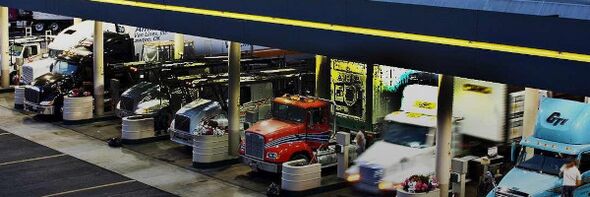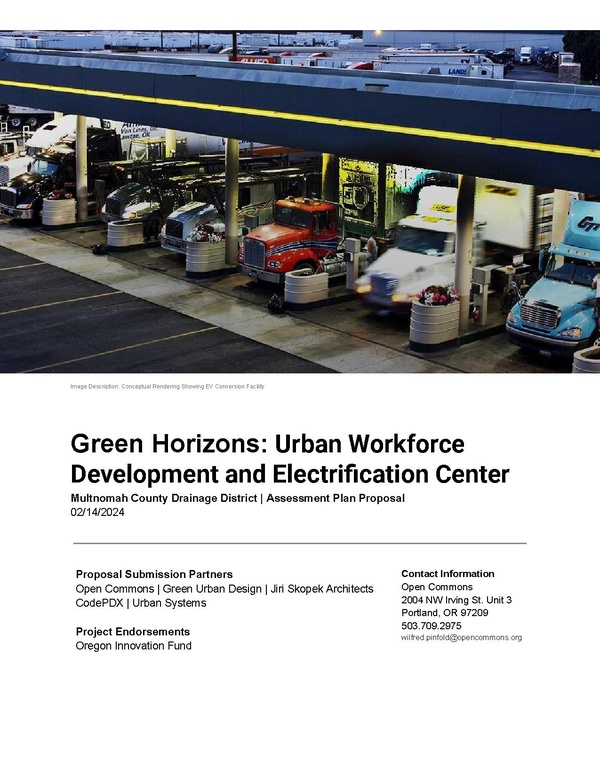Green Horizons: Urban Workforce Development and Electrification Center: Difference between revisions
No edit summary |
No edit summary |
||
| Line 34: | Line 34: | ||
District, multi-modal transportation, resilience and the ability to move toward a low-carbon | District, multi-modal transportation, resilience and the ability to move toward a low-carbon | ||
neighborhood. | neighborhood. | ||
==Click Image to Download Report== | |||
[[File:Green Horizons Workforce Development and Electrification Center Final.pdf|600px]] | [[File:Green Horizons Workforce Development and Electrification Center Final.pdf|600px]] | ||
==Click Image to Play Video== | |||
{{#ev:youtube|ii0D_CEOuQo}} | {{#ev:youtube|ii0D_CEOuQo}} | ||
Revision as of 23:00, May 1, 2024
| Green Horizons: Urban Workforce Development and Electrification Center | |
|---|---|

| |
 Jubitz Truck Stop | |
| Team Organizations | Green Urban Design Urban.Systems Code PDX |
| Point of Contact | Wilfred Pinfold |
| Participating Municipalities | Portland OR |
| Sectors | Wellbeing |
| Initiative | |
| Status | In Deliberations |
| Last Updated | April 22, 2025 |
Summary
The Green Horizons Workforce Development and Vehicle Electrification Center is pursuing a planning grant that aims to establish a positive sustainable economic impact for the Multnomah County Drainage District community. This project will produce an assessment plan for a combined workforce training and commercial grade EV fleet conversion facility. Beginning with five 1Washington Park Circulator Buses, the broad scope outlined here is to perform an impact assessment and community engagement. The output of which will be used to inform a workforce development initiative and partnership with MTR Western for conversion of a 180 bus fleet. It will put special emphasis on improving the community through strategic investments, such as integrating the community's live-work-play potential, enhancing safety, accessibility, creating equitable jobs in emerging technology, and transitioning to a greener economy.
Within the scope of the assessment plan we will establish a partner consortium to foster collaboration among industry, government, nonprofit, and community stakeholders. Guiding principles for this consortium will be to create a plan that offers a resilient, inclusive, and environmentally sustainable community. It will also look to create a close working relationship with adjacent industry partners in EV charging and Solar integration. We will assess this area of the city for its potential to become an active and vital mixed use district.
A series of workshops and research efforts to consider a suitable site, site access, land use, and identify mitigation strategies for hazard events, among other concerns (e.g. the natural risk of flooding, vehicle traffic etc..) will be integral to the plan.
Close attention will be given to the network of open spaces in the Multnomah County Drainage District, multi-modal transportation, resilience and the ability to move toward a low-carbon neighborhood.
